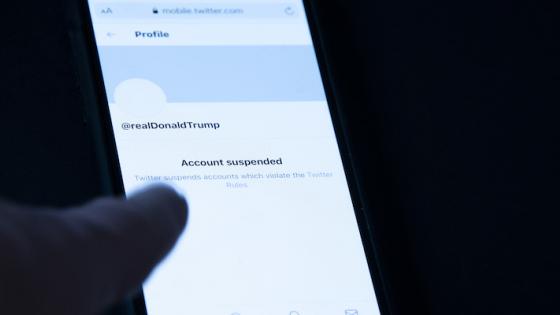
Twitter is free to ban users
Jan Bouwens discusses the decision by Twitter and other social media platforms to ban President Trump and members of his campaign, and the objections to the bans raised by politicians.
Search the site

Jan Bouwens discusses the decision by Twitter and other social media platforms to ban President Trump and members of his campaign, and the objections to the bans raised by politicians.
In January 2021, Chancellor Merkel and French Finance Minister Bruno Le Maire objected to the bans that social media platforms have imposed on certain users. The Economist reported that “even Alexei Navalny, a Russian opposition leader, weighed in (on Twitter) to oppose the ban.”
Their call skims over the identity of the companies involved and the fact that it is not the users but the technology-savvy staff that are their most important customers. Their call also ignores that under law in democratic countries, the judiciary has a duty to tackle subversive tweets.
The cutting of links by Twitter, Facebook and Amazon with the Trump campaign and the three companies.
Apparently, the companies arrived at the conclusion that the facilitation of the Trump campaign would harm them in the long term. Such a position is not entirely unreasonable when one considers that, in a democracy, freedom of speech does not extend to a call for a stampede.
Considering the drop in their share prices, not all owners of Twitter, Facebook and Amazon are of the same opinion. However, it was clear to management that their companies were worse off with the facilitation of the campaign and they took for granted that this choice entailed a reduction in Twitter traffic. From that point of view, the shareholders are right to punish Twitter, Facebook and Amazon; their returns were ultimately eroded.
It must be simultaneously understood that the users of social media are not the main ‘customers’ for these tech companies. According to the work of Bob Simons, the most important customer is the individual who is hard to get and enables the firm to pursue its business model. Just as faculty members are the most important customers for a university, tech savvy employees are the most important customers for tech firms. For it is the tech savvy employee who writes the programs for these companies and keeps their infrastructure running. The better their work and the greater their creativity, the more users these companies will be able to attract and the more advertisements will be sold as a result. Their work is the (long-term) value driver for companies such as Twitter and Amazon.
If ‘their’ company gives free rein to incitement to violence and the spread of hatred, there is a good chance that these employees will no longer identify with the beliefs and resign, which would seriously harm business operations. Their decisions to ban undesired messages clearly reflect that the Twitter, Facebook and Amazon management want to send a signal to current and prospective employees that they will not carry calls for stampedes or hatred on their platform. Indeed, the coverage of how Twitter made its decision to ban Trump that appeared in the New York Times reflects how employees pleaded with CEO Jack Dorsey to close Donald Trump’s Twitter account.
It seems that not all employees of these companies endorse the choice of their management. The social media network GAB claimed in a tweet (which has been removed from Twitter) that it received open applications from, among others, Twitter employees in the aftermath of Twitter’s decision to block specific accounts. They also claim that many social media users have now switched from other social media to GAB.
Of course, the second most important customers are advertisers. However, they will keep advertising as long as a sufficient numbers of users visit the platform. Of course, some firms may discontinue their business with a platform if their client base would resent the brand being advertised on that platform for political reasons.
In that light, concerns about the Twitter ban voiced by Chancellor Merkel and the French finance minister seem superfluous. After all, we see that the supporters of the ideas rejected by Twitter have found an alternative outlet. The free market regulates itself; no government is needed for that. However, the question that remains for politicians and the magistracy is how the admission of the free speech relates to calls to harm other people.
Calls for insurrection, hatred, and murder are prohibited in our democracies and culprits may be prosecuted on the basis of such calls. If the companies behind the social media platforms allow such calls to be made, it is up to the magistracy to deal with these companies. It is not up to politicians to hold these companies to account for the refusal of users of their services. That is their right, it makes economic sense, and it serves democracy!
Ediitor's note: An earlier version of this blog appeared on Me Judice.